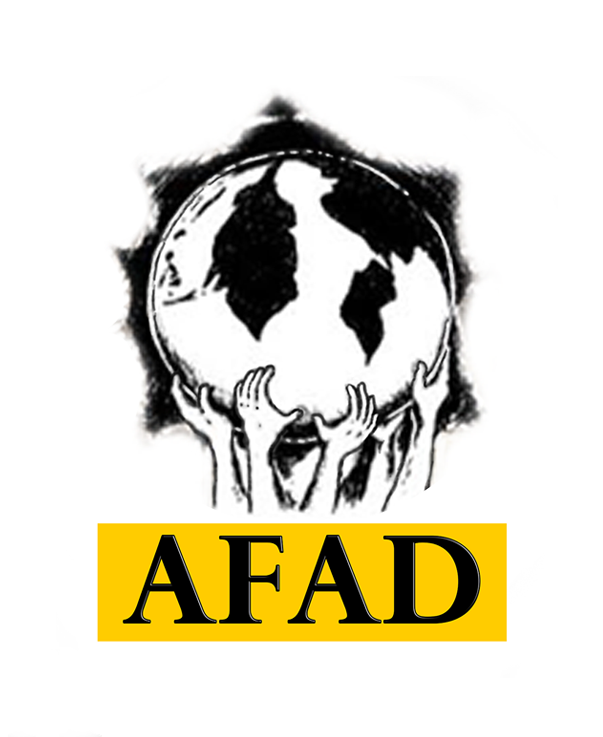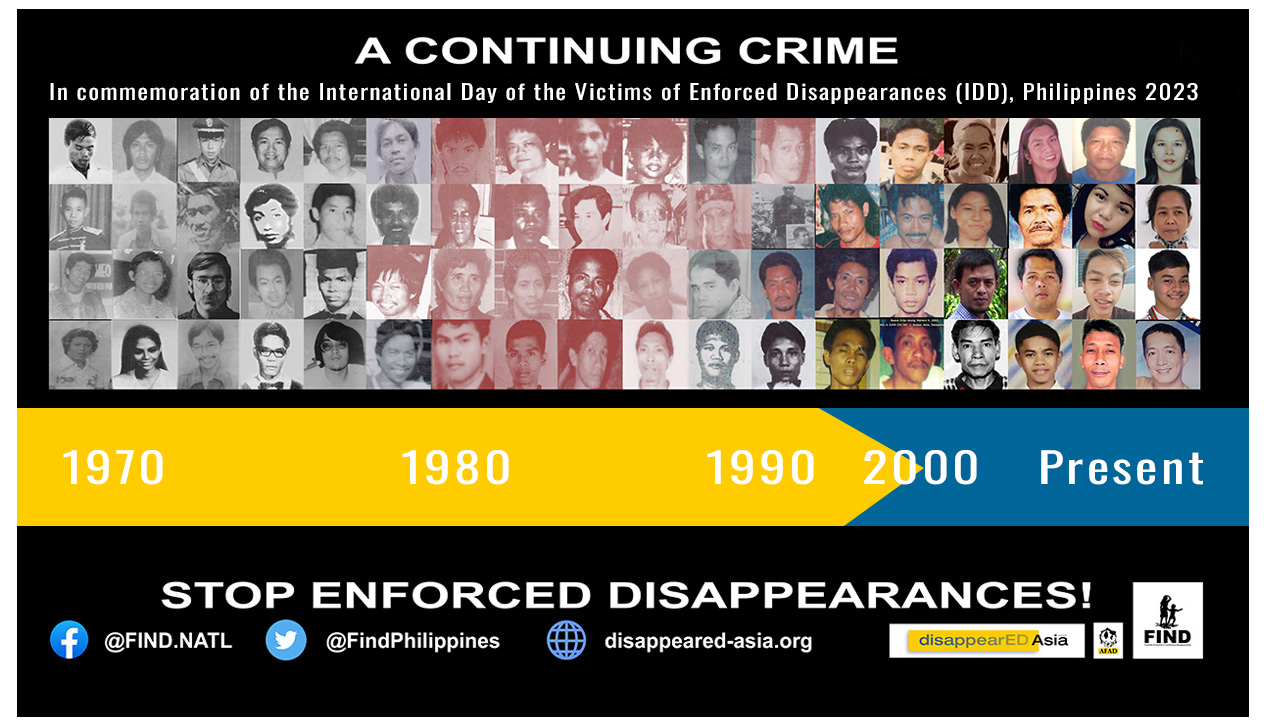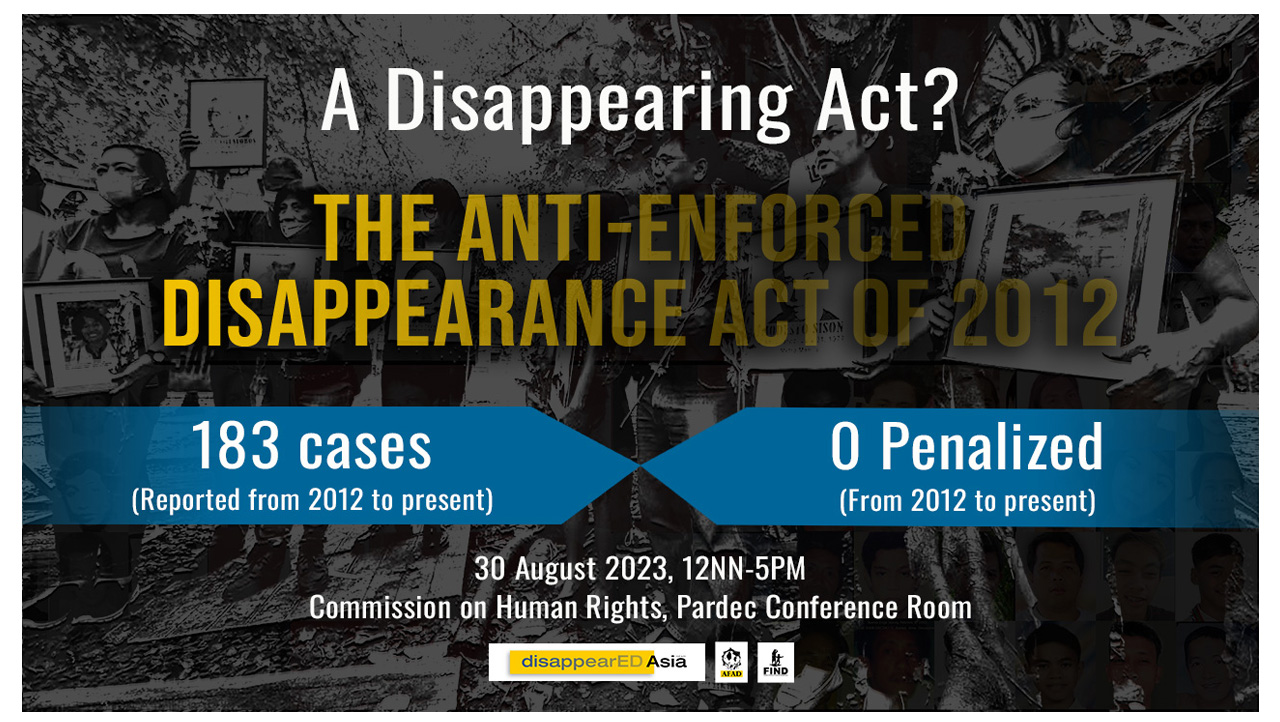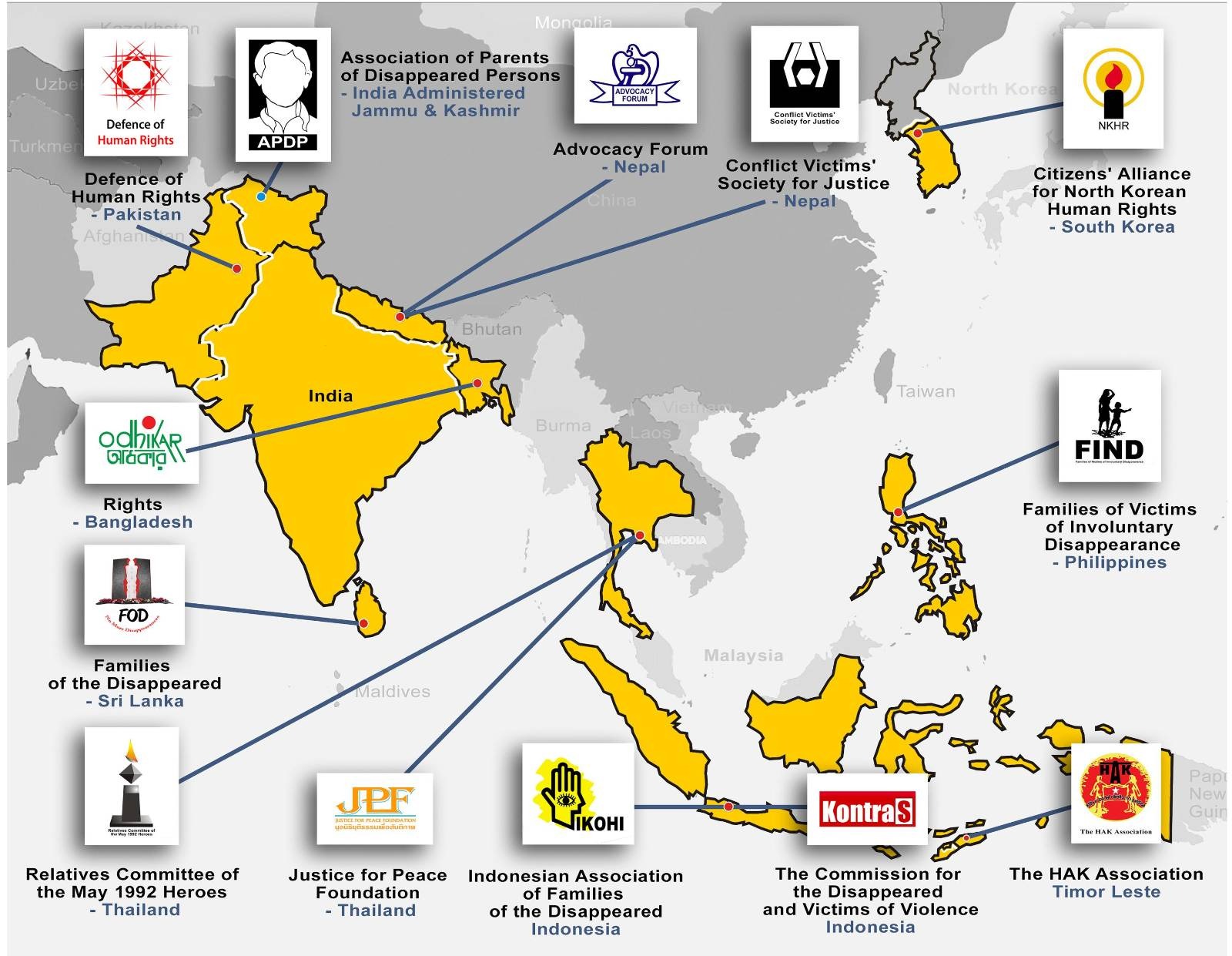What's Happening
Issue of denial of Right to Travel to the Human Rights Defenders from Jammu and Kashmir
MR. OLIVIER DE FROUVILLE
Chairperson
United Nations Working Group on Enforced or Involuntary Disappearances,
Geneva, Switzerland.
Esteemed Chairperson and Members of the UN WGEID,
We, the Council Members of the Asian Federation Against Involuntary Disappearances (AFAD), would like to bring to the attention of the UN WGEID the issue of continuous denial of travel documents to Mr. Parvez Imroz, AFAD Council Member representing the Association of Parents of Disappeared Persons (APDP) in Kashmir, India and his colleague Mr. Zahir-ud-Din, who is also member of the association. As you are fully aware, the AFAD has been continuously campaigning against the phenomenon of enforced disappearances in whole Asia. In the course of our work for truth, justice, reparation, redress and memory, our member-organizations are actively engaged in participating in conferences, workshops and meetings organized in different countries.
Remembering the Disappeared Without Graves to Visit…
All Souls’ Day, also known as Day of Remembrance of the dearly departed, is commemorated mostly by Catholics all over the world every 2nd day of November. Literatures describe it as a day of “solemn feast”[1], of visiting the tombs of loved ones in the cemetery where prayers are offered along with fresh flowers and lit candles. It is a day characterized as a collective activity where families and friends gather together to remember the dearly departed. Other cultures make the occasion festive with food, colorful altars with photos of the dead and other memorabilia.
Countries where Catholics are the majority, like the Philippines and Timor Leste, declare All Souls’ Day a national holiday so that relatives can visit their loved ones in the cemeteries. All Souls’ Day is also called differently by many languages. The Czechs call it “Commemoration of All the Departed”[2]. Other cultures refer to it as Day of the Dead, translated as Día de los Muertos[3] for Mexicans, Halottak Napja for Hungarians and Dia de Finados for Brazilians. Poles regard All Souls’ Day as zaduszki, a day when all the windows and doors are opened to welcome the spirits of the dead[4].
The Convention Against Enforced Disappearances: A Victory to Families of the Disappeared
By Mary Aileen D. Bacalso
Focal Person, International Coalition Against Enforced Disappearances
(ICAED)
Side Event: Respect The Right Not to be Disappeared:
Universal Accession and Implementation of the Convention Against Disappearances
Geneva, Switzerland
His Excellency the French Ambassador to Geneva, Mr. Nicolas Niemtchinow, Chairperson, Chair of the UN Committee Against Enforced Disappearances, Mr. Emmanuel Decaux, Chair of the UN Working Group on Enforced or Involuntary Disappearances , Mr. Olivier de Frouville, panellist Hugo Relva, friends, ladies and gentlemen,
Commemoration of the twentieth anniversary of the Declaration on the Protection of All Persons from Enforced Disappearance
Committee on Enforced Disappearances Participates in an Event Organized by the Working Group on Enforced or Involuntary Disappearances
The Committee on Enforced Disappearances participated this morning in an event marking the twentieth anniversary of the Declaration on the Protection of All Persons from Enforced Disappearance, which was organized by the Working Group on enforced or involuntary disappearances to explore best practices and challenges to protect women from enforced disappearances.
Opening the event, Kyung-wha Kang, Deputy High Commissioner for Human Rights, acknowledged the particular impact of enforced disappearances on women and said that it was important not to consider women solely as victims; many had played a central role in the fight against enforced disappearances and in bringing this heinous phenomenon to the attention of the international community.

 Asian Federation Against
Asian Federation Against 

